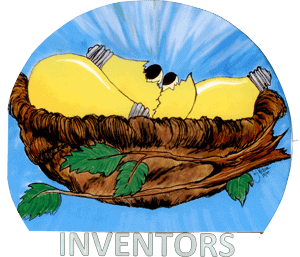
TEACHER RESOURCES
Great Teacher Resource – A Must See!
https://inhub.thehenryford.org/icw/home
This is a wonderful resource for teachers with numerous opportunities to teach and learn. Many FREE resources for affiliate teachers. Just
Create your login as a Florida Gulf Coast affiliate. You can assign students specific lessons they can link to! Over 90 website documents are now translated into Spanish. Mandarin and Arabic are soon to follow.
WHO:
Who will participate?
As a teacher, team, grade, department, or school, decide which students will be doing science or inventors projects this year. Will projects be required? If so, for who? The entire school? A whole grade level? One or two classes? Only the chemistry students? Only the honors students?
Who will you recruit as judges?
- Recruit the help of your PTO. Start by asking for volunteers within your school community. Local science organizations, clubs, and universities are also helpful. Members of the Scientists Society of Southwest Florida can also serve as Science Fair judges.
- Inventor Fair Students can participate in judging their peers. Judging Circles can be created with approximately six projects. Students in the circle present to each other and select the winner(s). Ideally, one or more adult moderators guide the discussions. A minimum of six projects are selected to go to Regional Competition.
Who will serve on your Scientific Review Committee for STEM-Related Projects?
A Scientific Review Committee (SRC) consists of a science teacher, a school administrator, and a biomedical scientist (medical doctor, psychologist, veterinarian, microbiologist, etc.) depending on the nature of the student’s project. These individuals are important for approving research plans at the school level.
WHAT:
What are your goals for your student’s invention projects and your school fair?
It is important to outline your goals and secure the support of your school administration. Invention projects easily align with Florida’s Next Generation Sunshine State Standards (NGSSS) and provide real-world applications.
WHEN:
When will your school fair(s) be held?
- Pick a date and time, and outline a timeline for students to complete their projects. Most invention projects will take a MINIMUM of six weeks to complete.
- Alert your parents and students early. Don’t assign the project right before Christmas break, and expect them to have it completed when they return to school.
- Coordinate the dates of your school fair to allow students the opportunity to advance to Regional, National, and International Fairs.
- Determine if your fair will be judged on-site or virtually.
- Consider if you will have judges interview students at the fair. This will help you determine the length of your fair and the number of judges you will need. Most interviews will take at least 10 minutes.
WHERE:
Where will your fair be held?
Review Display & Safety Guidelines for Regional Science Fair and Regional Inventors Fair. The standard physical display height is 36 inches but may be as high as 72 inches. All displays must be stable and not subject to falling over. The standard display board is a tri-fold with 12-inch folding ‘wings’ and a 24-inch center section. The width is a maximum of 48 inches, adjusted to fit a 36-inch table space, with a depth of 18 inches. Determine how much space you will need by the number of students and project display boards. Many schools host their fairs in their media centers, auditoriums, or lunch rooms. This will be influenced by Infectious Disease Guidelines at any time. Virtual Fairs may provide a backup plan.
HOW:
How will you make this happen?
- START EARLY! Organize a core group of individuals to help you! Don’t be afraid to ask for help. Refer to our website often or contact Edison Fairs staff with questions.
- Become familiar with the Invention Convention Worldwide for great classroom resources.
Verify:
- Make sure your students fill out the appropriate online registrations and load files.
- The majority of initial communicating will be shared through teachers. Accurate, timely communication for those advancing to the Regional Fair can be enhanced with access to parent/guardian phone numbers and emails. Student registration on the Florida Gulf Coast affiliate zFairs website will ask for contact information. During regional competition and through nationals, direct contact with family members is very helpful. Please go to the Student Resource page and detailed 2023 Educational Guidebook to review updated recommendations for logbooks and video presentations.
